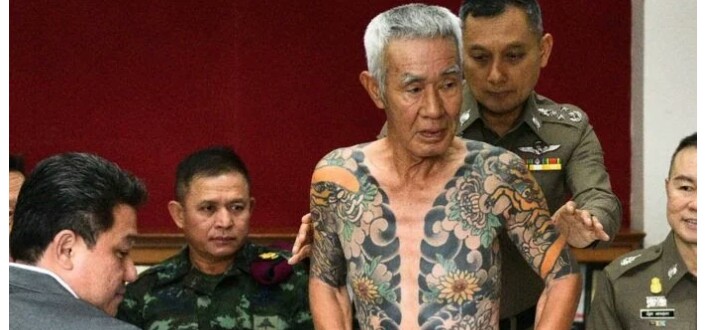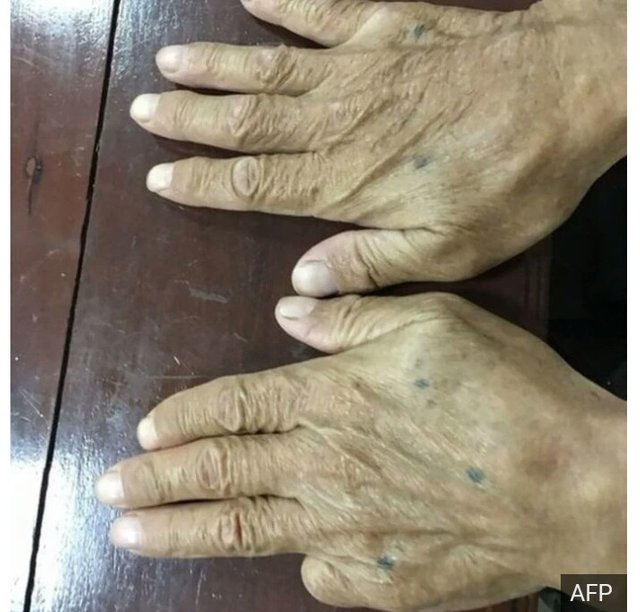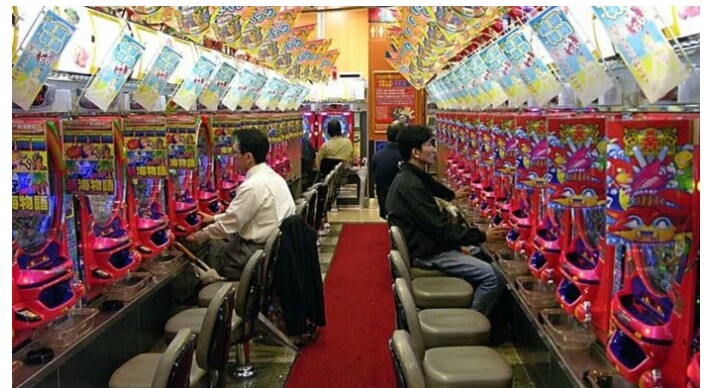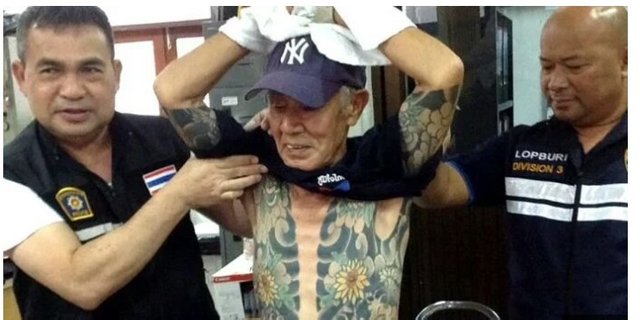A Japanese 'yakuza pensioner' accused of killing his enemy some 15 years ago was arrested in Thailand after photos of tattoos all over his body circulated on social media

Shigeharu Shirai, 72, spent a dozen years living in a quiet little town, Lopburi, just north of the capital Bangkok.
Menikah dengan perempuan Thailand, dia sepertinya sudah tak banyak berbeda dibanding warga setempat dengan pergi ke pasar, main catur bersama mereka, dan memperlihatkan tatonya.
Geng Yakuza pecah, polisi Jepang antisipasi kerusuhan
Buron mafia narkoba yang paling dicari Italia ditangkap di Uruguay
Perempuan Jepang berjuluk ‘Black Widow’ akui bunuh suami
Tapi tato itu yang kemudian membuat dia jadi bisa dikenali lagi dan ditangkap, Rabu (10/01) malam waktu Thailand.
Foto tubuhnya yang penuh dengan tato berwarna-warni itu disebar lewat internet dan terlihat oleh pihak berwenang di Jepang. Mereka juga melihat jari kelingking kirinya tidak ada lagi, yang merupakan ciri Shirai lainnya

So the police came and arrested the man who had been one of the yakuza bosses-or the famous and infamous Japanese mafia group-on the charge of killing an enemy in 2003
At a glance y akuza.
The yakuza emerged during the post-war Japanese period, which is still in a tumultuous state but is now evolving into an organization of criminals capable of raising billions of dollars from activities such as gambling, drugs, prostitutes and high-interest credits, extortion, or other underlying crimes.
His forerunner came from two criminal groups in the Edo period (1603-1868), the tekiya - who were generally involved in the trade in stolen goods or fake goods and bakuto - involved or involved in gambling.

Their presence is 'accepted' as the 'necessary demons' to maintain order on the streets and settle the matter quickly, regardless of the way it is questioned.
The four largest yakuza groups are Yamaguchi-gumi, Sumiyoshi-kai, Inagawa-kai, and Aizukotetsu-kai.
Unlike the Italian mafia or triad in China, the yakuza is not a forbidden organization and each group has its headquarters.
It is estimated that yakuza members worldwide reach 120,000 people.
Taken by locals, the tattoo image on Shirai's body was then spread to 10,000 times more on the internet before being watched by Japanese police.
"The suspect admitted that he used to be the leader of one of the yakuza branches, Kodokai," Thaiand Police spokesman General Wirachai Songmetta was quoted as saying by the AFP news agency.
General Songmetta added that Kodokai is associated with one of Japan's largest yakuza groups, Yamaguchi-gumi.
Shirai was charged with entering Thailand illegally and deported to Japan to face murder charges.
During his stay in Lopburi, he did not appear prominently - but perhaps forgot his tattoo - and received money two to three times a year from the Japanese men who came to him.
The police added that although he did not recognize the alleged murder, he admitted that the victim, the boss of his rival group, 'likes to bully him'.

Seven members of Kodokai were reportedly arrested and sentenced to 12 to 17 years in jail for the murder.
Thai police said it would investigate alleged members of other yakuza even though they were not wanted by Japanese security forces, given the approximately 70,000 Japanese residents living in Thailand.
Japan is the largest foreign investor in Thailand with a value of more than US $ 4 billion in 2017 or half of total foreign direct investment in Thailand